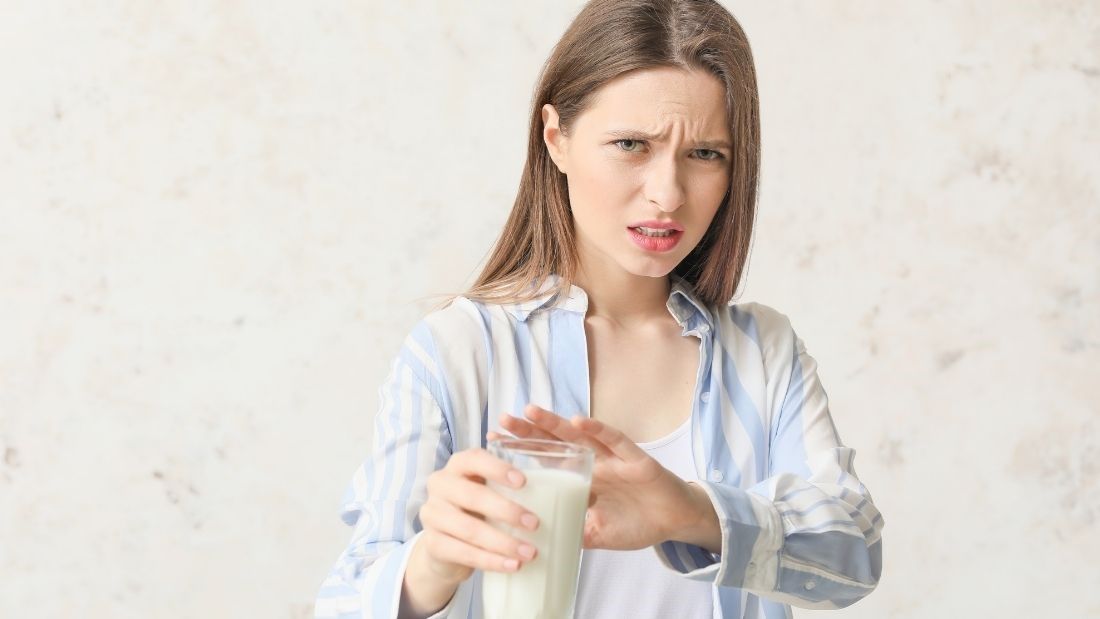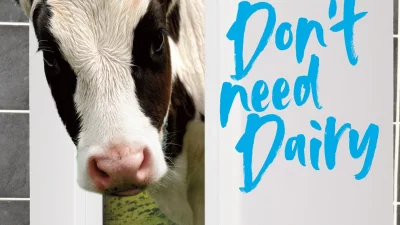Is organic dairy milk healthy?

The word ‘organic’ conjures up the notion of fresh, healthy food bursting with vital nutrients and devoid of any nasty chemicals.
This is the case with fruit, vegetables and grains, all valuable sources of vitamins and minerals but without the pesticide residues found in 40 per cent of non-organic foods. But when it comes to milk it’s a different story.
The numerous health claims made for organic cow’s milk are not backed up by science. In fact, organic milk could be more even harmful than ordinary milk – for your health, the planet and even for the animals.
Myth: Organic dairy milk is the healthy option
Truth: Organic dairy milk offers no health advantage
The scientific consensus is that organic milk offers no significant health benefits but there is confusion. In 2006, Newcastle University found that organic milk contained 20 per cent more vitamin E while in 2007, Glasgow University found organic milk had 15 per cent less vitamin A.
The most common health claim is that organic milk has more ‘good’ fats (polyunsaturated essential fatty acids). Critics argue that these higher levels are simply because the cows have access to higher quality pasture are nothing to do with being organic. The same argument goes for the antioxidant content of milk.
Recent research shows that there can be more toxins in organic milk than non-organic. Two European studies found higher levels of a toxin called aflatoxin M1 in both organic milk and cheese. It is produced by moulds found in stored animal feed such as organic grain and may be due to the ineffective treatment of organic grain crops.
Myth: Organic milk does not contain hormones
Truth: All animal milk contains hormones
All cow’s milk, whether organic or non-organic, contains hormones and growth factors. It is, after all, baby food designed to help a newborn animal grow, and the reason why growth factors are implicated in certain cancers. An additional concern is that two-thirds of milk in the UK is taken from pregnant cows when the hormone content is sky-high.
All cow’s milk contains:
- Hormones and growth factors – linked to cancers such as breast and prostate.
- Saturated animal fat – linked to obesity, type 2 diabetes, heart disease and stroke.
- Casein – the milk protein linked to childhood allergies and type 1diabetes in some children.
- Lactose – the sugar in milk responsible for the uncomfortable symptoms of lactose intolerance – bloating, wind, cramps etc.
It makes no difference whether the milk is organic or not!
Myth: Organic dairy farming is more environmentally friendly
Truth: Organic dairy farming is more destructive
Livestock farming produces more climate change gases than all the world’s different transport systems combined. It produces greenhouse gases through CO₂ from production processes, nitrous oxide from manure and methane from digestion. It makes no difference whether the animals are organic or not. In fact, because organic cows produce less milk, their methane emissions per litre are higher.
Furthermore, almost all cleared Amazon land is used for grazing cattle or growing animal feed for export. The debate should not really be about whether organic is better than non-organic but about why we continue to allow livestock farming to destroy the world.
Myth: Organic dairy farming is kinder to animals
Truth: Organic dairy farming practices are just as cruel and may be worse…
We are often asked if organic dairy farming is better for the cows. The uncomfortable truth is that it isn’t. Animal welfare is little better on organic farms and in some ways may even be worse.
Organic standards restrict the use of drugs in animals and this can lead to sick and infected cows being denied treatment or even being culled. Mastitis is a painful infection of the udder that affects 30 per cent of dairy cows and is routinely treated with antibiotics. The only way this differs in organic herds is that the figure can be higher.
Dairy cows have been selectively bred to produce enormous quantities of milk which requires a great deal of energy. Under organic rules, some high-energy supplements are banned and as a consequence, organic cattle can become even more emaciated than non-organic – little more than skin and bone with pendulous udders.
Like us, cows only produce milk if they give birth and so they have to be made pregnant every year in order to keep the milk flowing. They all endure the trauma of having their calves taken away shortly after birth with females being kept to repeat the same gruelling cycle of pregnancy and lactation as their mothers.
Most male dairy calves are not suitable for beef so they are either shot or exported to continental veal farms. Organic male calves suffer the same fate and although some organic standards prohibit export for veal, others don’t, sending them to appalling conditions that would be illegal in the UK. A small number of males are raised in the UK for so-called ‘high-welfare’ rose veal. They have bedding, more space and a better diet but they are still slaughtered at just six months old. Until every organic organisation bans live calf exports, organic milk from farmers who trade in misery will reach the supermarket shelves.
In exploding the organic dairy myths, we aren’t calling for organic fodder to be swamped with deadly pesticides so it survives better in store. We aren’t demanding high-protein supplements to be made available to prevent the collapse of a cow’s metabolism. And we aren’t arguing for organic cows to be pumped full of antibiotics to treat mastitis. All these things are available to non-organic cows and have given us the disaster that is today’s dairy farming.
What we are saying is that if you care about animal welfare, the environment, or your own health, don’t drink dairy at all. There are plenty of alternatives available.


